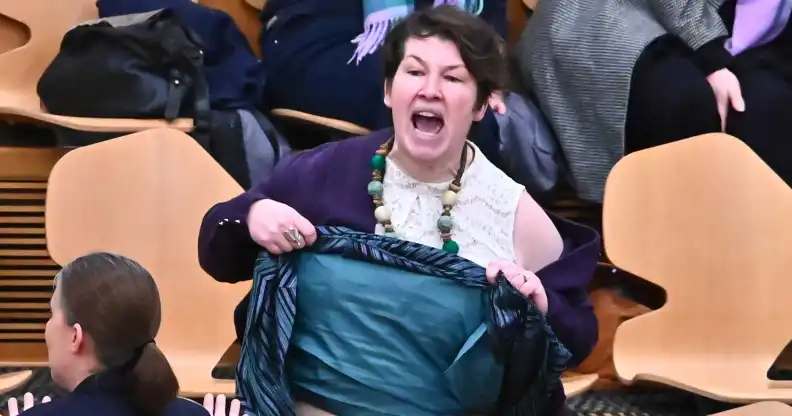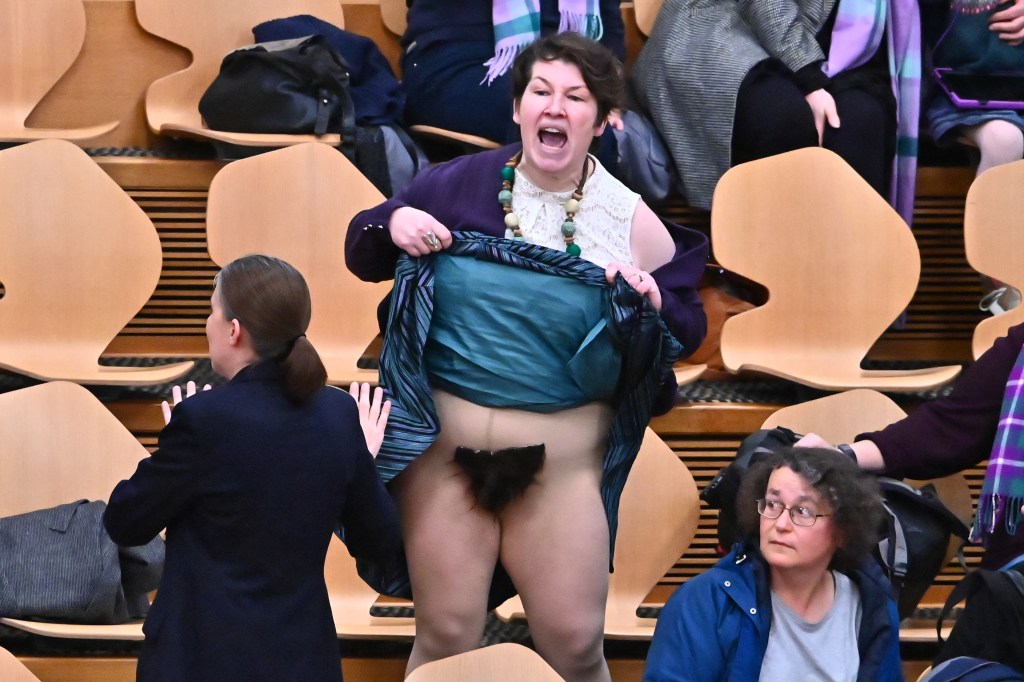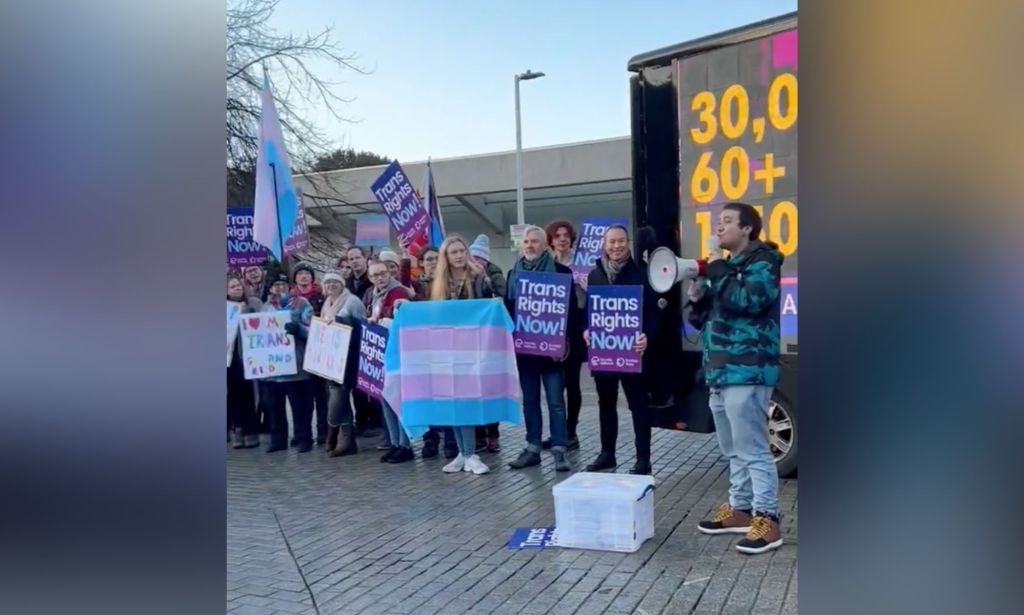‘Gender critical’ protester flashes pubic wig in Scottish parliament after trans rights bill passed

A protester lifted her skirt in the Scottish Parliament. (Getty)
A protester against trans rights reform flashed a pubic wig in the Scottish Parliament after MSPs passed its Gender Recognition Reform Bill.
The protester, comedian and “pelvic physiotherapist” Elaine Miller, stood in parliament after the bill passed by 86 votes to 39 on Thursday (22 December), and shouted: “If this parliament will not respect the rights of women then you have no decency.
“And if you will not be decent toward women who are being raped right now in jails that you’re in charge of, if you will not be decent, then I will be indecent.”
She then lifted up her skirt to reveal a wig, adding: “If you think that’s the first time there will be a minge out you’re wrong”.

Another protester shouted “shame on you” from the public gallery. According to the National, the protesters were escorted from the gallery, and no arrests were made.
The stunt was criticised by many who noted the irony of an anti-trans protester “exposing” herself, when trans people are so often accused baselessly of being sexual predators.
Miller referenced the “gender critical” claim that gender reform would imperil women in prisons and other single-sex spaces.
Access to single-sex spaces is not contingent on having a Gender Recognition Certificate and so isn’t impacted by the Scottish reforms.
A report published in August by the Scottish Prison Service confirmed there were 11 trans women and five trans men in Scottish prisons at the end of June 2022. Just five trans women were held in women’s prisons, all in single cells. Meanwhile, statistics make clear that the biggest risk to cis women is cis men.
Trans community ‘relived’ by Scottish gender reform – but Westminster threatens progress
The LGBTQ+ community across Scotland celebrated the groundbreaking Gender Recognition Reform bill passing through parliament, with many feeling “pleased and relieved”.
The bill would allow those aged 16-18 to access legal gender recognition, while also cutting the time trans people must wait for a Gender Recognition Certificate (GRC) from two years to a few months.
Trans people would also be able to gain legal recognition without being required to get medical reports or a diagnosis in order to obtain a GRC.
Under current legislation, trans people must apply to a UK gender recognition panel and present reports as well as a diagnosis of gender dysphoria – a process that can take years given the immense wait times at NHS gender clinics.

Vic Valentine, manager of Scottish Trans, said: “The law that has passed today will mean that at important moments in their lives, like when starting a job or giving notice to be married, trans men and women will be able to show a birth certificate that reflects who they are.
“We all want to be able to live true to ourselves, and by voting for these simple but important changes to the existing process for trans people to be legally recognised, MSPs will improve trans men and women’s lives, by allowing them to live with the dignity and recognition that everyone deserves.”
Trans youth charity Mermaids said the win is “a historic victory in the fight for equality that will transform the lives of trans people in Scotland”.
While the legislation has been voted through, the UK Tory government has suggested that it could still block the bill “if necessary”.
Tory Scottish secretary Alister Jack warned on Thursday (22 December) he could seek to block Scotland’s gender recognition reforms from being given Royal Assent by the King.
“We share the concerns that many people have regarding certain aspects of this bill, and in particular the safety issues for women and children,” Jack said in a statement seen by PinkNews.
“We will look closely at that, and also the ramifications for the 2010 Equality Act and other UK-wide legislation, in the coming weeks – up to and including a Section 35 order stopping the bill going for Royal Assent if necessary.”
The Scottish government has made clear the Gender Recognition Reform Bill does not change the Equality Act 2010.
Scotland’s justice secretary Shona Robison said during the final debate: “Trans rights are not in competition with women’s rights, and as so often before, we can improve things for everyone when those discriminated against act as allies, not opponents.”

